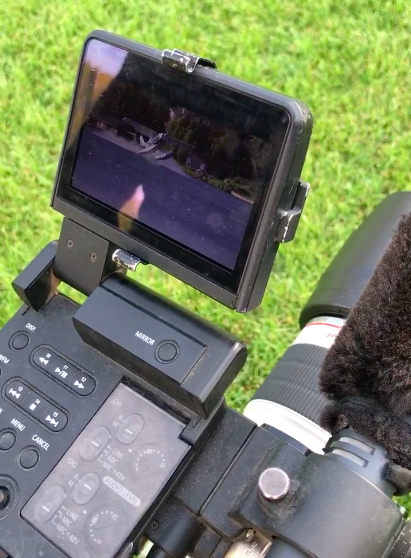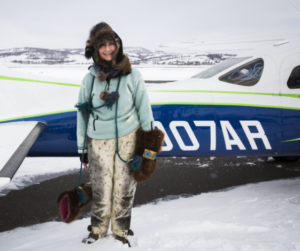Ermalee Hickel, former first lady of Alaska, died early in the afternoon of Sept. 14, 2017 at her home in Anchorage. She had just turned 92. Her family members were by her side when she passed.
Ermalee represented a generation of legacy political families in Alaska that dated back to territorial days. Gov. Walter Hickel died May 7, 2010.
Born Ermalee Strutz on September 11, 1925 in Anchorage, Ermalee’s father was a sergeant in the U.S. Army who had been stationed in Alaska.
The Strutz’ bought a home at the west end of the Park Strip in Anchorage, which was an air strip and sports field at the time. The family was associated with National Bank of Alaska, which became Wells Fargo.
Ermalee was the youngest of six. She was the editor of her school newspaper and was an usher at the Empress Theatre, but also worked in the cannery at the Port of Anchorage and as a secretary at Elmendorf Air Force Base.
She met Wally Hickel after his first wife had died when his first son, Ted, was still a baby. He had heard about her and sought her out when he returned to Anchorage with young Ted.
Wally and Ermalee were married on Thanksgiving Day in 1945, in a Catholic church located where Holy Family Cathedral is today.
When Ermalee became Mrs. Hickel, she instantly became “Mother” to Wally’s son Ted, the family wrote.
“Five more Hickel sons arrived in the ensuing years, and Wally would call Ermalee ‘Mother’ for the rest of his life,” according to the family history. By 1952, Wally’s business, Hickel Construction, had built nearly two hundred homes in Anchorage.
Wally got into politics and was the spokesman for the Alaska Republican Party for over a decade. He unseated Gov. Bill Egan, a Democrat, in 1966.
Stories from her life are found at the family’s web page.
Current Chairman of the Alaska Republican Party Tuckerman Babcock remembers Mrs. Hickel from the time when he worked for Gov. Hickel. “She was always concerned about how people serving in public office conducted themselves,” he recalled.
“She was a very active, and very engaging first lady,” Babcock said.
Kristie Babcock, who is married to Tuckerman, worked for Gov. Hickel, and remembered when she gave birth to her first child on Dec. 2, 1994, two days before the Hickels left office. “They came to visit me at Bartlett. Ermalee was just a real person,” Kristie said. “And she loved a good sale at Nordstrom. She was a gracious hostess and would open the Governor’s House and do dinners for the staff.”
“We feel a great sense of loss at hearing of Ermalee Hickel’s passing. She was a most gracious Alaskan and wonderful former First Lady, and an inspiration to all of us who followed. Our thoughts and prayers are with the Hickel family and extended family.” – Sandy Parnell, former First Lady
Jean Overstreet of Juneau got to know Ermalee when she was in Juneau as First Lady, and later on the two became good friends and managed Wally Hickel’s office during his second run for governor.
“One of the nicest compliments I ever heard the governor make about her is that she could be at home at a white-tie banquet or be comfortable conversing with people on a dirt floor,” Overstreet said. “She was so generous with her time.”
The Hickels were also generous with their treasure. They started the Walter J. and Ermalee Hickel Alaska Foundation, a fund of the Alaska Community Foundation. They also funded the Hickel House at Providence Hospital, an affordable home-away-from-home for outpatients and their families.
The service has not been announced.
“As sad as we all are, I think my Aunt Erm is probably as giddy as a schoolgirl tonight. The last time I saw her, we were talking and she told me ‘ I’m ready to go be with dad. I tell God everyday, I’m ready to be with Wally.” – Bernadette Wilson
Judy Eledge, president of the Anchorage Republican Women’s Club, said Ermalee was a lifelong member who will be missed.



